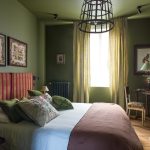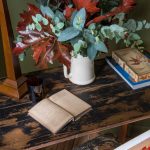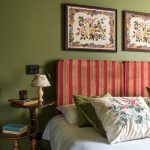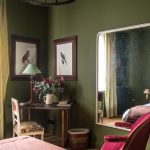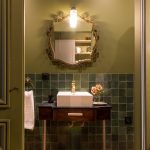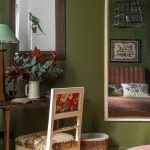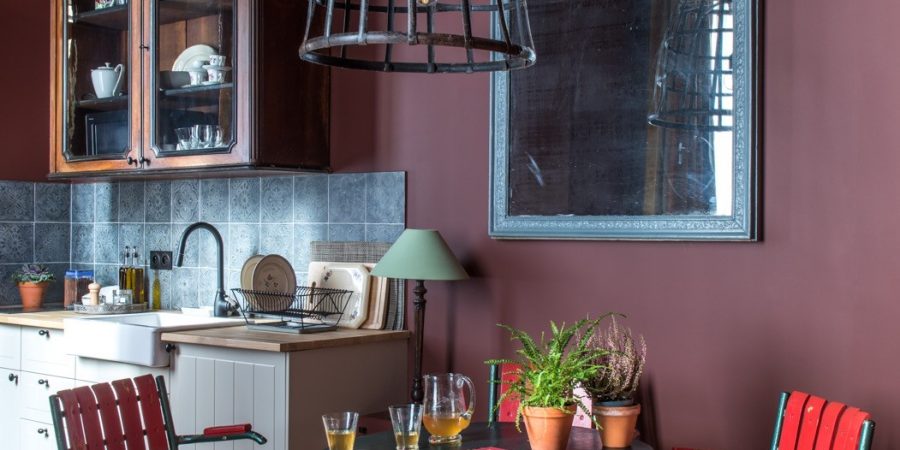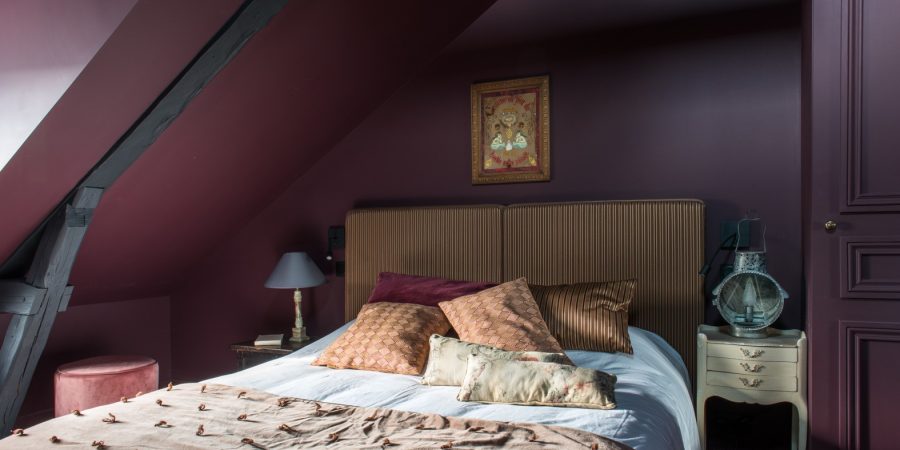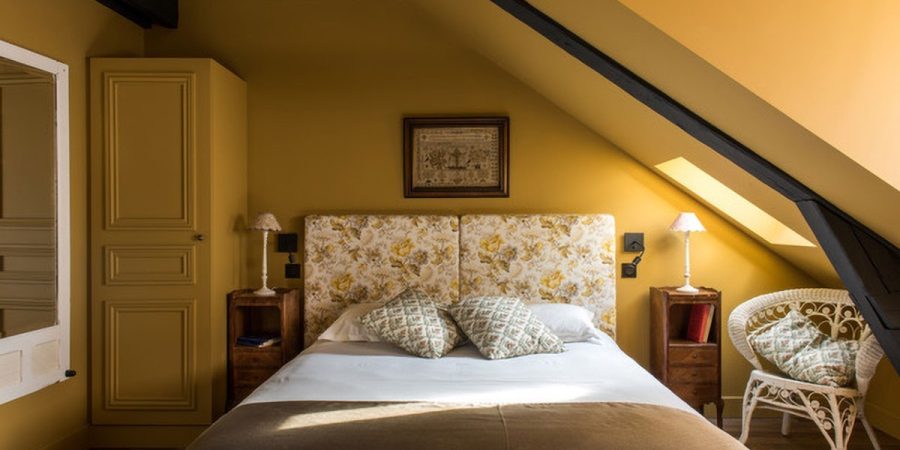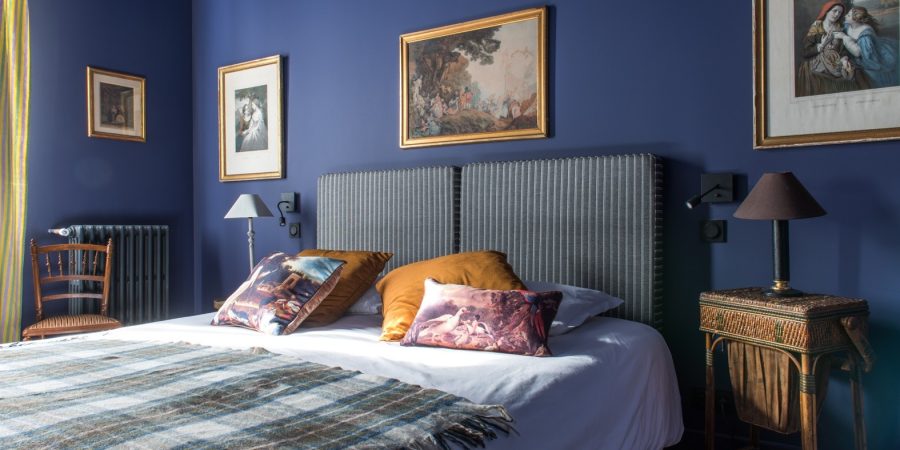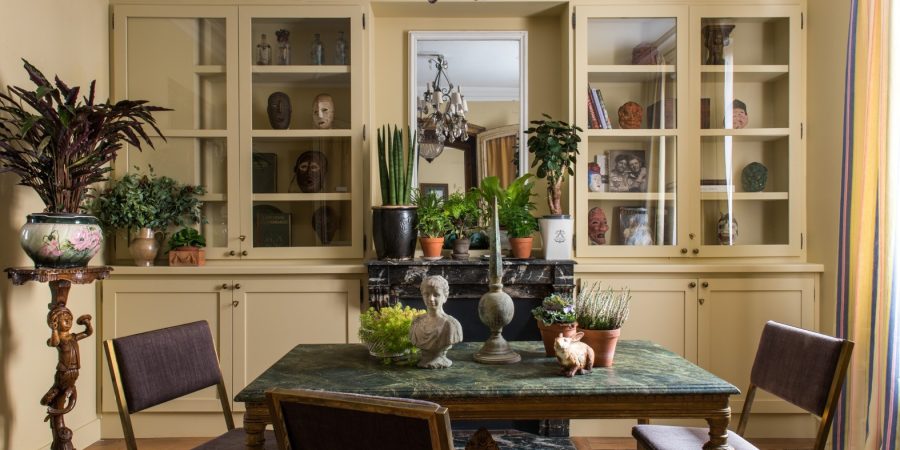Célestine
The apartment Célestine at Villa Augustine in Dieppe epitomizes the spirit of the renowned French author Proust. This comfortable accommodation comprises a separate bedroom, a beautiful well-equipped kitchen and its dining area, as well as a bathroom.
Located on the first floor of Villa Augustine, this very pretty apartment in Dieppe will give you a real experience when it comes to decoration. The walls and ceilings are painted in the famous khaki green Bancha 298 from Farrow & Ball. You will dream your nights away in Normandy in high-quality, large sized bedding (king size bed 180X200 cm). In addition to the bedside lamps, each headboard is equipped with reading lights. A small desk and a large closet will allow you to settle in comfortably to enjoy your vacation in Dieppe.
The kitchen is very well equipped, and will allow you to cook specialties like the local Marmite dieppoise… but also to prepare your breakfasts, accompanied by fresh croissants that you will have picked up from one of the best bakeries in town, just a stone’s throw away from Villa Augustine. The bathroom features a large shower, a washbasin and a toilet.
Bed linen and towels are included with the rental of this apartment.
The surface area of apartment Célestine is approximately 27 m2. For your convenience, a washing machine and a dryer are available in the laundry room of Villa Augustine.
But what do we owe to Célestine?
Because Dieppe is a place where fine food abounds, and we are real food lovers! It is Céleste Albaret, born Augustine Célestine Gineste, who was Marcel Proust’s housekeeper and confidante, who inspires us here. The character of Françoise in “In Search of Lost Time” (La Recherche) owes a lot to Célestine: an outstanding cook, wonderfully loyal, she follows the family in its travels.
“Françoise would add—as the labor of fields and orchards, the harvest of the tides, the luck of the markets, the kindness of neighbors, and her own genius might provide; and so effectively that our bill of fare, like the quatrefoils that were carved on the porches of cathedrals in the thirteenth century, reflected to some extent the march of the seasons and the incidents of human life—a brill, because the fish-woman had guaranteed its freshness; a turkey, because she had seen a beauty in the market at Roussainville-le-Pin; cardoons with marrow, because she had never done them for us in that way before; a roast leg of mutton, because the fresh air made one hungry and there would be plenty of time for it to ‘settle down’ in the seven hours before dinner; spinach, by way of a change; apricots, because they were still hard to get; gooseberries, because in another fortnight there would be none left; raspberries, which M. Swann had brought specially; cherries, the first to come from the cherry-tree, which had yielded none for the last two years; a cream cheese, of which in those days I was extremely fond; an almond cake, because she had ordered one the evening before; a fancy loaf, because it was our turn to ‘offer’ the holy bread.” From “Swann’s Way” (In Search of Lost Time). Marcel Proust

